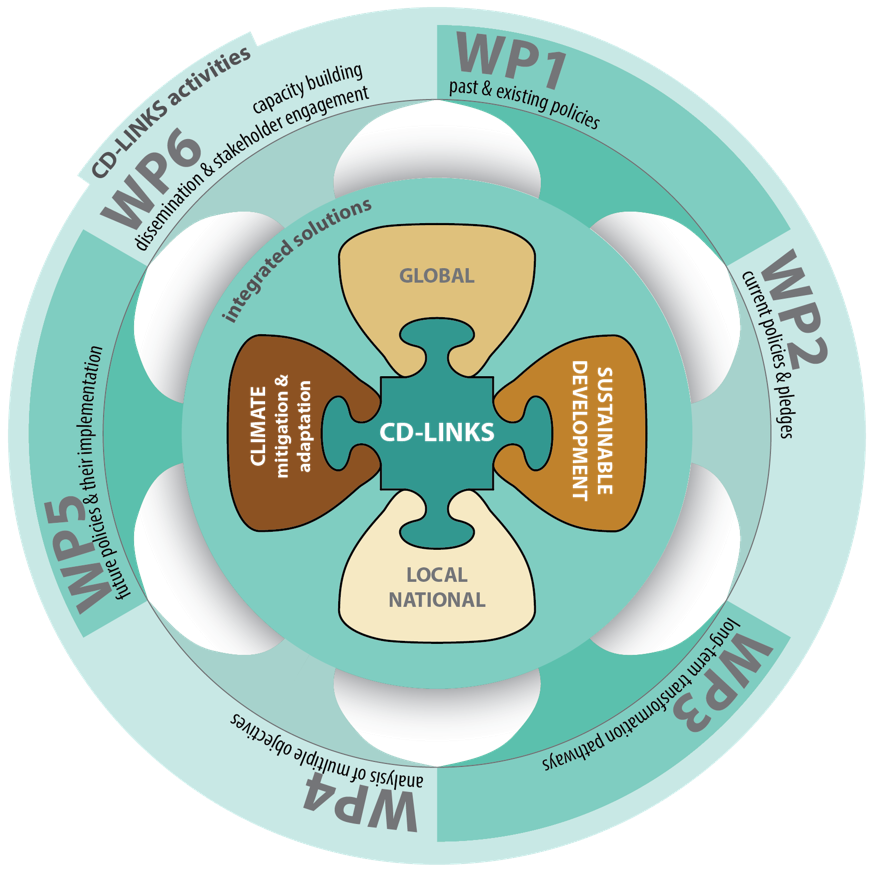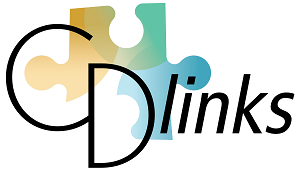Project structure
Activities undertaken within the project will be split into six highly interlinked work packages (WPs): five concentrating on research, and a sixth on capacity building, dissemination and stakeholder engagement. This subdivision of efforts will focus the expertise of participating research teams on particular tasks, thereby ensuring the project’s main objectives are completed with maximal efficiency. At the same time, the extensive collaborations involved will allow for the free flow of information and knowledge-sharing between teams, notably amongst national and global modellers/analysts and across EU and Non-EU G20 countries. Another recurring theme throughout the project is the attention given to both climate and development in all WPs.
More specifically, with their empirical analyses and assessments of past, existing and planned policies, WPs 1 and 2 will set the stage for the low-carbon development pathways modelling to be conducted in WPs 3 and 4. The synthesised insights from these four WPs will then yield concrete ideas for future policy action (WP5), one of the main aims of the project. This approach to informing policy through scientific analysis will also be accompanied by a host of capacity building, dissemination and communication activities (WP6), including close linkages with ongoing policy initiatives at the national and international levels. These WPs will be executed for the most part in parallel, given the numerous linkages and feedbacks within and between. The core activities of the CD-LINKS work packages are listed below. Detailed descriptions are provided in subsequent sections.
CD-LINKS work packages

- WP1: Empirical assessment of the effectiveness of past and existing policies
- WP2: Assessment of international country pledges, national action plans and development policies
- WP3: Coherent national and global low-carbon development pathways
- WP4: Climate change as part of the broader development agenda – Systematic assessment of synergies and trade-offs between multiple policy objectives
- WP5: Future policies and related implementation challenges and opportunities
- WP6: Capacity building, dissemination and stakeholder engagement
